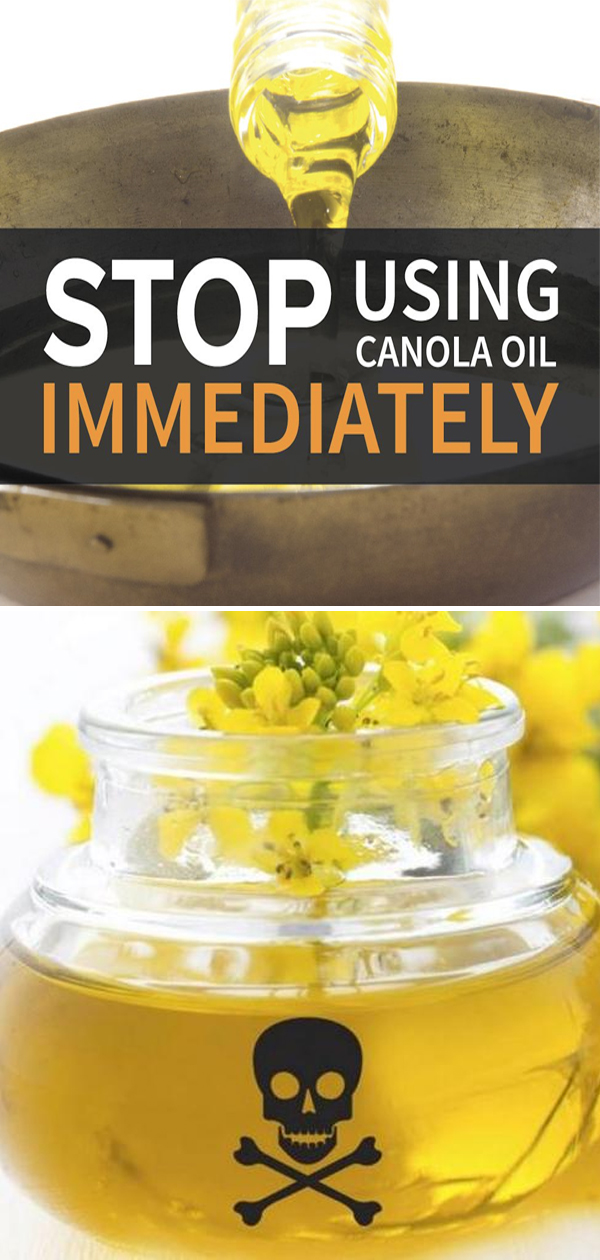Canola oil still leaves many experts baffled. While one side of the medical world supports canola oil as a healthy ingredient to our everyday lives, others warn canola oil might pose a threat to our wellbeing.
Rich in omega-3s, and low in unhealthy fats, canola oil is a great source of oleic acid, all factors which go on to support its benefits.
Discovered in Canada back in the 70s, canola oil witnessed a true revolution in 1995, with its first genetic modification. Ever since then, we have used a genetically processed form of canola oil, which is set out to boost our health, instead of impairing it.
But, is there more to canola oil than meets the eye?
Defining Canola Oil
Let’s begin by saying that canola oil comes from rapeseed oil, which belongs to the mustard family. Rapeseed oil is rich in erucic acid, which is excellent in preventing health issues. Canola oil used to go by the name of LEAR (low-erucic acid rapeseed) but changed its name in effort to gain marketing advantage.
Canola oil is commonly used in many cosmetic products, like soaps, lip balms, lubricants, insecticides, candles, and inks.
Is Canola Oil Harmful?
With many speculations on its possible disadvantages, here are several facts on canola oil, which may shed light on its effectiveness:
- Around 90 percent of today’s canola oil is genetically modified.
- Canola oil is also hydrogenated in some parts, to ensure its performance and structure.
- Some reports suggest canola oil can lead to kidney and liver damage, as well as neurological disorders.
Like all modern vegetable oils, canola oil goes through the process of refining, bleaching, and degumming — all of which involve high temperatures or chemicals of questionable safety.
And because canola oil is high in omega-3 fatty acids, which easily become rancid and foul-smelling when subjected to oxygen and high temperatures, it must be deodorized.
The standard deodorization process removes a large portion of the omega-3 fatty acids by turning them into trans fatty acids.
Although the Canadian government lists the trans content of canola at a minimal 0.2 percent, research at the University of Florida at Gainesville, found trans levels as high as 4.6 percent in the commercial liquid oil. The consumer has no clue about the presence of trans fatty acids in canola oil because they are not listed on the label.
Possible Side Effects of Using Canola Oil:
1. Kidney and Liver Damage
Canola oil is genetically modified, which may hurt the kidneys and liver. As per a 2011 review based on 9 studies, GMO foods can deeply affect the kidneys and liver in mammals, with 43.5-percent damage in male and 30.8 female mammals.
2. Heart Issues
Being a monounsaturated oil, canola oil is full of erucic acid, which can lead to heart conditions, with a special accent on Keshan disease. In terms of studies, they show that Keshan disease patients all has low selenium and high erucic acid levels in the body.
3. High Blood Pressure and Stroke.
A study on canola oil showed that the oil itself can cause hypertension in rats, and increase the odds for stroke. In addition, the study showed that other oils are far healthier than using canola oil.
In a second study in the field, canola oil caused for blood to cause clots in animals tested. The study also noted there had been a ‘canola oil-induced shortening of blood coagulation time and increased fragility in [red blood cell membranes]’ which can trigger a stroke with ease.
4. Delayed Growth
Canola oil, as GMO food, has prevented the proper growth in rats, studies suggest. Although oftentimes used in baby food, canola oil is to be avoided around infants, opting for a more suitable food source replacement.
5. Higher Level of Trans Fats
One study in the field showed that in canola oils in the US, ‘The trans contents were between 0.56% and 4.2% of the total fatty acids.’
Canola oil first goes hydrogenation, making the oil gain a greater trans fats content. These fats are particularly damaging to the body, leading to cholesterol problems and imbalances.
6. GMO Threats
As per the Center for Food Safety, GMO foods, much like canola oil, can increase the risks for:
- Body toxicity
- Allergies
- Immunity issues
- Cancer
- Malnutrition
Finding the Suitable Canola Oil Replacement.
Instead of using canola, despite its possible merits, you can opt for a proven healthy replacement, like:
— Coconut oil – rich in healthy fats, virgin coconut oil is a great alternative to canola oil.
— Olive oil – much healthier than canola oil, and offering almost no side effects, olive oil is your go-to product.
— Ghee or organic butter – thanks to alpha lipoic acid and conjugated linoleic acid found in organic butter and ghee, these products make a great replacement for canola oil.
— Red palm oil – collected from the fruit instead of the kernel, red palm oil is rich in vitamin E and beta-carotene. Because of this, it is easy to use this oil for cooking and keeping your health optimized.
Nutritional Value of Canola Oil
A regular cup of canola oil contains:
- 1,927 calories
- 218 grams of fat
- 1 grams of saturated fat
- 9-gram trans fat, yet other reports claim that it is much more
- 155 micrograms vitamin K (194 percent DV)
- 1-milligram vitamin E
At the same time, canola oil is full fatty acid contains:
- 1 gram of saturated fat
- 138 grams of monosaturated fat
- 4 grams of polyunsaturated fat
- 5,018 or 19,921 milligrams of omega-3 fatty acids, based on the main source
- 40,646 milligrams of omega-6 fatty acids.
Canola Oil Benefits
If you are still considering giving canola oil a chance, here are some of its main benefits to take in account:
- Canola oil lowers cholesterol levels in the body.
- It helps strengthen the heart and cardiovascular health.
- It replenishes the skin and prevents premature aging.
- It keeps the body’s cell membranes protected.
- Boosts energy levels.
- Could lower the chance of cancer development.
- Stimulates brain performance.
- Regulates and prevents diabetes.
- Eliminates inflammation.
- Keeps the hair vital and healthy.
Before using canola oil, it is worth enough for you to do respectable research in the field or consult a medical professional on its dangers and possible effects. After all, this is your health we are talking about, and you can only get it wrong once.


